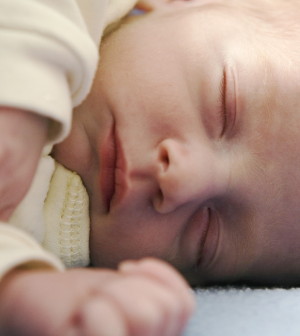- Could Your Grocery Store Meat Be Causing Recurring UTIs?
- Are You Making This Expensive Thermostat Error This Winter?
- Recognizing the Signs of Hypothyroidism
- 10 Strategies to Overcome Insomnia
- Could Artificial Sweeteners Be Aging the Brain Faster?
- Techniques for Soothing Your Nervous System
- Does the Water in Your House Smell Funny? Here’s Why
- Can a Daily Dose of Apple Cider Vinegar Actually Aid Weight Loss?
- 6 Health Beverages That Can Actually Spike Your Blood Sugar
- Treatment Options for Social Anxiety Disorder
The Parenting Trap: Coddling Anxious Kids

Some parents may make things worse for their anxious kids by falling into what researchers call the “protection trap” — reassuring them, lavishing them with attention or making the threat go away, according to the results of a small study.
The finding indicates that certain coddling behaviors may actually boost anxiety, although the study doesn’t prove a cause-and-effect relationship.
“We found evidence that when parents try to help their anxious children they do a lot of things,” said study co-author Armando Pina, an associate professor of child developmental psychology at Arizona State University. “Some of them are good, like promoting courage with warmth and kindness. Others are less helpful, like promoting avoidance by overprotecting, which many times leads to more anxiety.”
That can lead to other problems, one expert noted.
“Left untreated, anxiety disorders in youth are associated with greater risk for other psychological problems such as depression and substance use problems,” said Donna Pincus, director of research at the Child and Adolescent Fear and Anxiety Treatment Program at Boston University. Anxiety problems can also disrupt families and cause kids to perform worse in school, she added.
Parents often rush to comfort their kids when they’re anxious, but finding the right approach can be tricky, the researchers said.
“When children are in distress or upset they need parental comfort, reassurance and extra love. This is good,” said study lead author Lindsay Holly, a graduate student at Arizona State University. “Sometimes, however, parents end up providing excessive reassurance and doing things for the child, like making excuses for why a child who is anxious in social situations won’t go to a birthday party or talking for the child by ordering at restaurants.”
In the new study, researchers examined the results of a survey of 70 kids aged 6 to 16 who were treated for anxiety and/or depression at a clinic. The kids were equally divided among boys and girls and among whites and Hispanic/Latinos.
The investigators found that some kids were more likely to have anxiety and depression symptoms if their parents reinforced or punished their anxiety through various approaches. Among the two ethnic groups, “the only difference was that Latino parents seemed to attend more frequently to their children’s anxiety,” Holly said.
It’s hard to know what that finding means, said David Coe, a clinical psychologist at Miami Children’s Hospital. It could be because of a real cultural difference, a statistical glitch, or the product of language interpretation challenges, he said.
The study authors were careful not to blame parents. Since the study doesn’t look at cause and effect, “parents should not think that they are making their children anxious,” study co-author Pina noted.
But, he said, previous research has indicated that a certain kind of therapy can help kids become less anxious and more resilient by teaching the importance of facing fears. One of the goals of the therapy is to teach parents how to promote courage in the kids through a combination of warmth and kindness, Pina said.
Coe added that the best way to treat anxiety is to expose people to anxious situations in a “controlled, supportive” way.
Holly suggests that parents encourage their children “to do brave things that are small and manageable.” A child who’s afraid of speaking in public, for instance, might be urged to answer a question about whether they want fries with their meal at a restaurant.
The study was published recently in the journal Child Psychiatry and Human Development.
More information
For more about anxiety in kids, visit the Anxiety and Depression Association of America.
Source: HealthDay
Copyright © 2026 HealthDay. All rights reserved.










